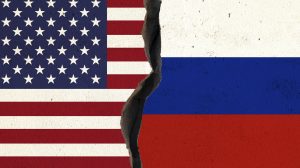Search
Published on:
Further Sanctions Issued by the U.S. Government and Global Allies
On February 22 and 23, 2022, President Biden announced further sanctions in response to Russia’s invasion of Ukraine. These sanctions build upon the U.S. sanctions issued on February 21, 2022. Specifically, the additional sanctions include (a) blocking two Russian financial institutions and their subsidiaries, as well as five Russian individuals associated with the Putin regime; (b) expanded sanctions targeting Russian sovereign debt and persons who support such transactions; and (c) sanctions on Nord Stream AG and its CEO.
The United Kingdom, European Union, Canada, Australia, and Japan have also issued or announced sanctions in response to Russia’s invasion. Further sanctions are likely if the situation in Ukraine continues to escalate.
 Global Trade & Sanctions Law
Global Trade & Sanctions Law


